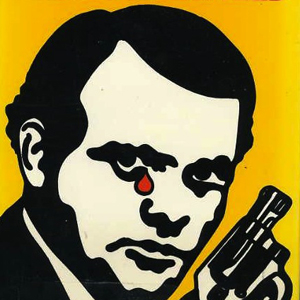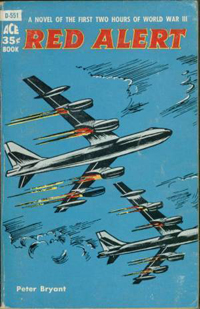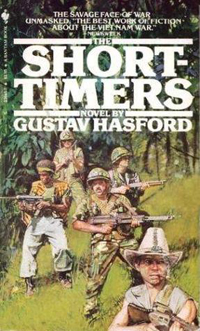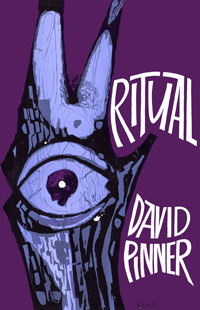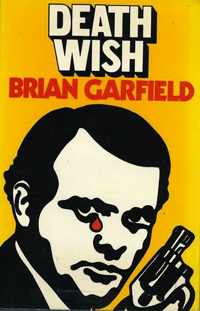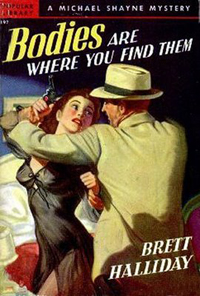Red Alert! Movies You May Not Know Where Based On Pulp Novels (Part 2)
|
In part one, Who Goes There? Movies You May Not Know Where Based On Pulp Novels, we brought you five works of literature that inspired or were used as the basis of movie adaptations. However loose that adaptation may have been. Here we bring you five more movies that you may well not have realised were based on novels. Often the movie far surpassing the literary work it was based on, most of these novels have all but disappeared into obscurity. Often for good reason! As the old adage of the book always being better than the movie is turned on its head.
A couple of honourable mentions that didn't make the list because I assumed many people actually do know they were based on novels. The character of Rambo, and the movie Rambo: First Blood (1982), is based on the 1972 novel of the same name by David Morrell. And the original Planet Of The Apes (1968), was based on the 1963 French novel La Planète des Singes. Which was first published in English under the title Monkey Planet. |
|
Red Alert by Peter George (1958): Originally published in the UK as Two Hours to Doom, with George using the pseudonym "Peter Bryant". A sombre story, about the ease with which nuclear war could break-out. A 1962 novel Fail-Safe, by Eugene Burdick and Harvey Wheeler, was sued for plagiarism due to its similarities to Red Alert. Fail-Safe was also made into a 1964 movie of the same name, directed by Sidney Lumet.
The Movie: The classic darkly humorous Cold War political satire, Dr. Strangelove or: How I Learned to Stop Worrying and Love the Bomb, directed by Stanley Kubrick in 1964. Red Alert author George collaborated on the Dr. Strangelove screenplay with Kubrick and satirist Terry Southern. The original novel didn't actually include the character Dr. Strangelove. When Kubrick discovered that Lumet was making the movie version of Fail-Safe, he was afraid that the movie would trump his own. Especially if it was released before Dr. Strangelove. Due the the earlier plagiarism law-suit, Kurbrick filed a suit against the makers of Fail-Safe, sufficiently delaying its release so that Dr. Stranglove came out first. |
|
The Short-Timers by Gustav Hasford (1979): A semi-autobiographical novel by American U.S. Marine Corps veteran Hasford, about his experience in the Vietnam War. Hasford's 1990 novel The Phantom Blooper was a sequel to The Short-Timers. The Short-Timers and The Phantom Blooper are currently out of print, but available online.
The Movie: Full Metal Jacket (1987), another adaptation from director Stanley Kubrick. Kubrick seemed to like adaptations, as well as Dr. Strangelove and Full Metal Jacket, others he did include 2001: A Space Odyssey (1968), based on the Arthur C. Clarke short story The Sentinel, and The Shining (1980) from the 1977 Stephen King novel. The Short-Timers was adapted into the movie by Hasford, Michael Herr, and Kubrick. The boot-camp segment of the movie, which is the first section of the novel, "The Spirit of the Bayonet", is faithfully reproduced in the movie. The movie then combines certain elements of the other two parts of the novel, "Body Count" and "Grunts", for the second part of the movie. Names were changed, and some characters from the novel were altered or merged together for the movie, with other characters being omitted. |
|
Ritual by David Pinner (1967): A horror novel, about a puritanical English police officer who is asked to investigate what appears to be the ritualistic murder of a local child in an enclosed rural Cornish village. During his short stay, Hanlin deals with psychological trickery, sexual seduction, ancient religious practices and nightmarish sacrificial rituals.
The Movie: The Wicker Man, the 1973 British mystery horror film directed by Robin Hardy. The Cornish village of the novel was changed into the isolated island of Summerisle. The screenwriter of The Wicker Man, Anthony Shaffer acquired the rights to Ritual for £5000. Shaffer set to work adapting the book but soon came across problems with its structure but, moreover, realised that the book simply wasn't exciting enough to be turned into a worthwhile production. And so only used the basic structure of the novel as the basis of the script he eventually wrote. Pinner originally wrote Ritual as a film treatment for director Michael Winner, who had John Hurt in mind as a possible star. Winner eventually declined the project, so Pinner's agent convinced him to write Ritual as a novel instead. |
|
Death Wish by Brian Garfield (1972): Hard to believe possibly, but there was a novel before the cheesy vigilante movie. The book is the same premise, with hilariously contrived justification for vigilantism and graphic depictions of the protagonist-killing scumbags. However the novel differs from the movie, in that the movie (and it's many sequels) seems to revel in vigilante violence, whereas the novel denounces it. It is only within the last 50 pages of the novel that the main character slays his first victim.
The Movie: Death Wish was directed by Michael Winner and starred Charles Bronson, was released in 1974. The story of a husband and father turned vigilante killer, after his wife is murdered and his daughter is sexually assaulted during a home invasion. At the time of release, the film was attacked by many film critics due to its support of vigilantism and advocating unlimited punishment of criminals. After selling the rights to the novel, Garfield was offered the chance to write the screenplay, but turned it down. Wendell Mayes was then hired to write the screenplay. He preserved the basic structure of the novel and much of the philosophical dialogue. |
|
Bodies Are Where You Find Them by Brett Halliday (1941): The fifth novel in the Mike Shayne series of hardboiled detective mystery novels. Brett Halliday was a pseudonym of David Dresser, who wrote some fifty Shayne novels. Over two dozen more Shayne novels were written by Robert Terrall, and published under the Halliday pseudonym. Unlike many hardboiled pulp fiction novels of the period the early Shayne novels mixed the hardboiled style with screw-ball comedy. Like many pulp detectives Shayne is a heavy drinker, heavy fisted but a quick thinker.
The Movie: Kiss Kiss Bang Bang, the crime comedy, directed by Shane Black and starring Robert Downey Jr. and Val Kilmer. Previously Black had written the Lethal Weapon series of movies, in which he also employed the mixture of crime thriller with comedy elements. The movie is loosely based on the novel, but picked-up the tongue-in-cheek styling of the original novel. The movie also borrows the idea of being constantly sidetracked by the protagonists thoughts and unexpected bodies turning up. |
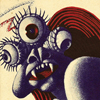
Who Goes There? Movies You May Not Know Where Based On Pulp Novels (Part 1) - There have been many movie adaptations of novels, but did you know of these weird ones?
|
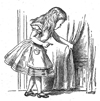
Top Ten: Weird Alice In Wonderland Movies - From the early days of silent cinema, via musical porn and surrealist European cinema to Japanese anime. We certainly ain't talking Disney here.
|

